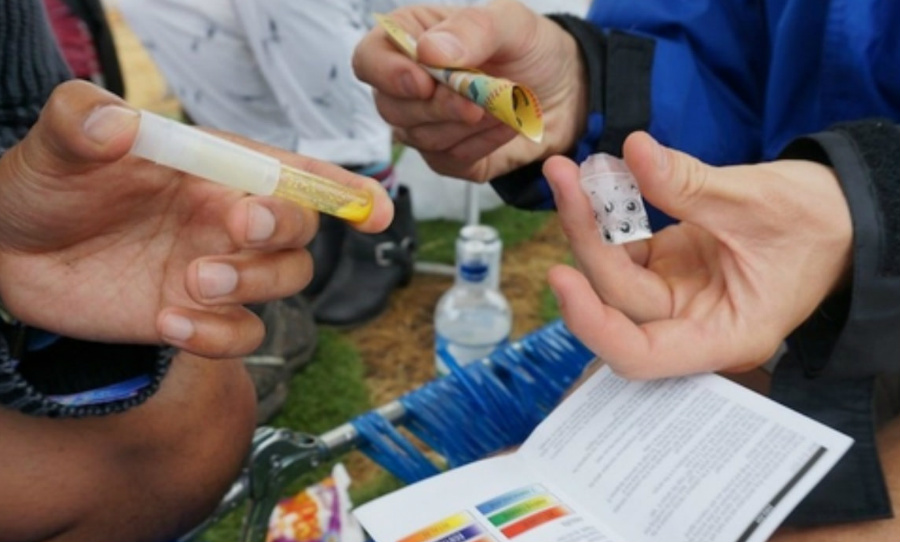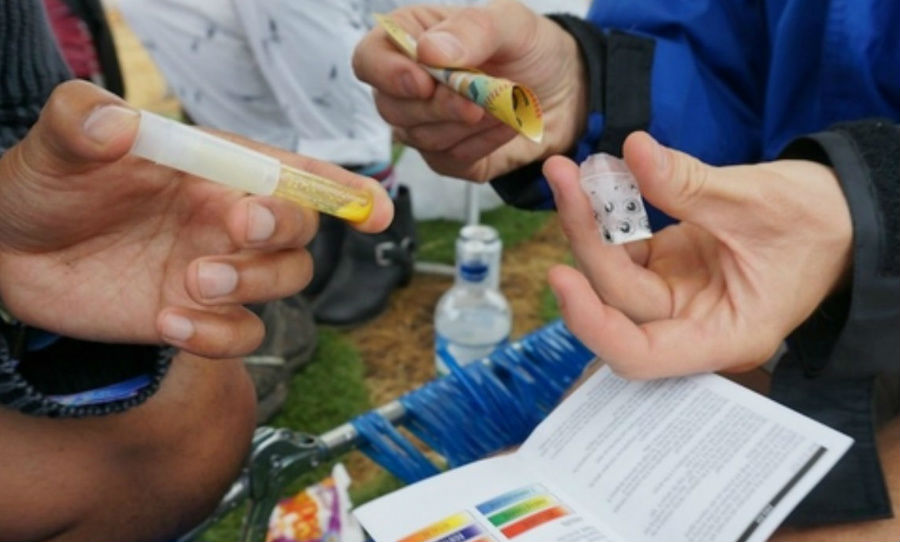After deeming it an “overwhelming success”, Pill Testing Australia have released a detailed report with findings from the second pill testing trial at Groovin the Moo in Canberra in April this year.
The free service, which aimed to “provide a health service to reduce the harms associated with drugs and to broadly diminish the health, social and economic costs of drug use,” tested 170 substances for 234 participants and found seven dangerous substances, including N-ethyl pentylone.

Following the huge success of the second both pill testing trial at Groovin the Moo in Canberra, Pill Testing Australia have released a detailed report of their findings.
All patrons at GTM that found dangerous substances in their drugs chose to use the amnesty bin to discard them, rather than take the substances as they initially planned to. Patrons who did not find dangerous substances in their drugs were still provided with health and safety information, and many chose to decrease the number of substances consumed in light of the information.
“Pill testing services offer a unique and efficacious opportunity to engage with young people and effect positive behavioural change to reduce the risk of drug-related harm,” said Dr David Caldicott, an Emergency Medicine Consultant who oversaw the clinical team at both pill testing pilots in Canberra. “This cohort is unlikely to have ever had contact with health services in relation to their drug use.”
The report states the positive evidence of pill testing from around the world, in particular, Switzerland, where there have been zero ecstasy-related deaths since the implementation of pill testing service SaferParty. The report also points out a festival in the UK that introduced pill testing in 2016, when festival drug-related incidents were at an all-time high. Drug-related hospitalisations at the festival were greatly reduced compared to the year before, going from 19 to zero.
In light of the successes of both pill testing trials, PTA called on the state governments to support pill testing in the country. They also acknowledged that while not taking drugs is, of course, the safest option, people are still going to take drugs with or without pill testing. The detection of unsafe substances or high purity drugs can reduce harm by making patrons rethink taking the drugs in their possession.
“We are dealing with a group of people who are attending a music festival in possession of drugs that they already have the intent of consuming. In the absence of any other intervention, the presence of a pill testing service won’t make it any more likely that they would consume the drugs they have brought into or bought at the festival.
The idea that most people, when provided with information about the content of their drugs, will ignore that information, regardless of its nature, greatly underestimates the inclination of this generation to preserve their health. Pill testing may not be able to stop all consumers from taking their drugs, but it can certainly alter ‘how’ they take their drugs (taking fewer drugs, mixing fewer drugs…) in such a way as to avoid them coming to harm.”
You can read the full report from Pill Testing Australia here.



